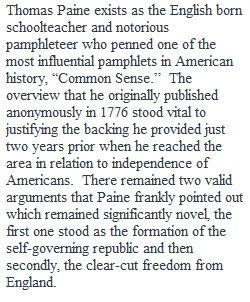


Q Please answer only one question (250 words minimum) and respond to two other posts (50 words minimum for participation point-- 100 to 150 for content points)! Discussion Questions: 1. What accounts for the behavior of British ministers and members of Parliament during the imperial crisis? Why didn’t British policymakers seek more effective ways of dealing with the American resistance? 2. Why did many Ameri¬cans interpret Britain’s attempt to centralize its colonial empire as a sinis¬ter conspiracy to enslave colonials by depriving them of property and liberty? 3. According to the text, by 1776, “Many Americans liked being English, but being English hadn’t worked....It was the destiny of Americans to be American, not to be English.” In what ways had American ideas of what it meant to be English changed since 1763? 4. Was the dispute over taxation and representation a noble appeal to the principles of freedom, or merely an issue of the pocketbook? Discuss the motivations of the revolutionaries. 5. Samuel Adams remarked, “We cannot make events. Our business is wisely to improve them.” What did Adams mean? Use the quotation to write an essay describing what some of the events were and, more specifically, the techniques Adams and others used to “im¬prove” them. 6. What was novel and significant about the ideas put forth by Thomas Paine in Common Sense? 7. Why did the British adopt a “southern strategy” after 1778? What could the British have done differently in order to win the war in the South? 8. Assess the relative importance of the militia and the Continental Army in securing rebel victories in the War for Independence. 9. What was the single most important reason that the British lost the War for Independence? 10. From Washington’s point of view, what were the chief obstacles to be overcome in fighting the war? How did he address those problems? 11. Henry Laurens, a South Carolina merchant, reported that after the war’s outbreak, local slaves took up the cry of Liberty—he put it—“in thoughtless imitation.” Do you agree? What options were available to African-Americans during the Revolution? How did different people exercise those options? Be as specific as possible. 12. Discuss the global issues that were involved in the American War for Independence.
View Related Questions